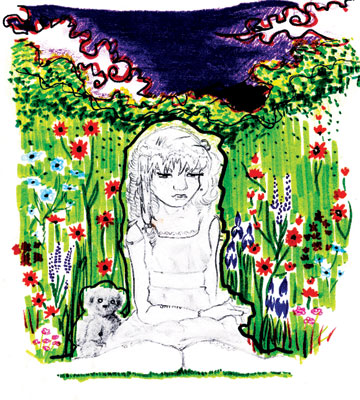All Nonfiction
- Bullying
- Books
- Academic
- Author Interviews
- Celebrity interviews
- College Articles
- College Essays
- Educator of the Year
- Heroes
- Interviews
- Memoir
- Personal Experience
- Sports
- Travel & Culture
All Opinions
- Bullying
- Current Events / Politics
- Discrimination
- Drugs / Alcohol / Smoking
- Entertainment / Celebrities
- Environment
- Love / Relationships
- Movies / Music / TV
- Pop Culture / Trends
- School / College
- Social Issues / Civics
- Spirituality / Religion
- Sports / Hobbies
All Hot Topics
- Bullying
- Community Service
- Environment
- Health
- Letters to the Editor
- Pride & Prejudice
- What Matters
- Back
Summer Guide
- Program Links
- Program Reviews
- Back
College Guide
- College Links
- College Reviews
- College Essays
- College Articles
- Back
Hijab MAG
The most annoying stereotypes I have encountered are about my hijab. Sadly, most of these ideas are misunderstandings. For example, “hijabis are quiet and traditional” and “women who wear a hijab are oppressed and are forced to wear it.” These misconceptions upset me very much. First, if you believe that Muslim women are forced to wear the hijab you are ignorant about the fact that women can and do make their own choices like anyone else.
Once, a few years ago, a friend I hadn’t seen in a long time asked if my parents forced me to wear my hijab. When I told her they didn’t, she was surprised. She didn’t know that it was my choice.
Another time I experienced racism was once when I was walking down the streets of Chicago with a few of my friends. One friend and I were wearing our hijabs. As we were about to cross a street, a young woman suddenly pushed past us and said, “Go back to your homes, terrorists!” I was shocked, and my friend was so angry that she was about to chase the woman and give her a piece of her mind, but I stopped her. How can people say such things and just walk away?
Author Sherman Alexie said that as a child, people around him thought that Native Americans were uneducated and stupid. Since so many people were saying this, some children began to believe it, which aided in degrading and doubting themselves.
Stereotyping can hurt the victim, even though they might not show it. Words hurt, and we need to be careful what we say, and most importantly, stop stereotyping.

Similar Articles
JOIN THE DISCUSSION
This article has 2 comments.
